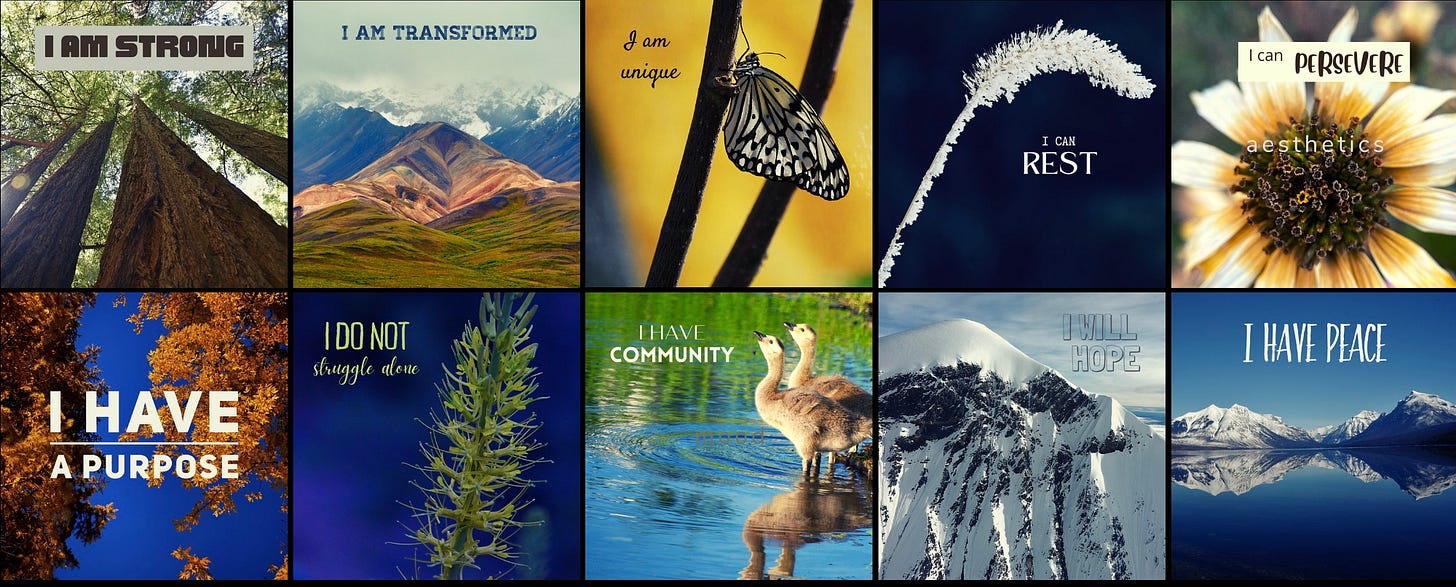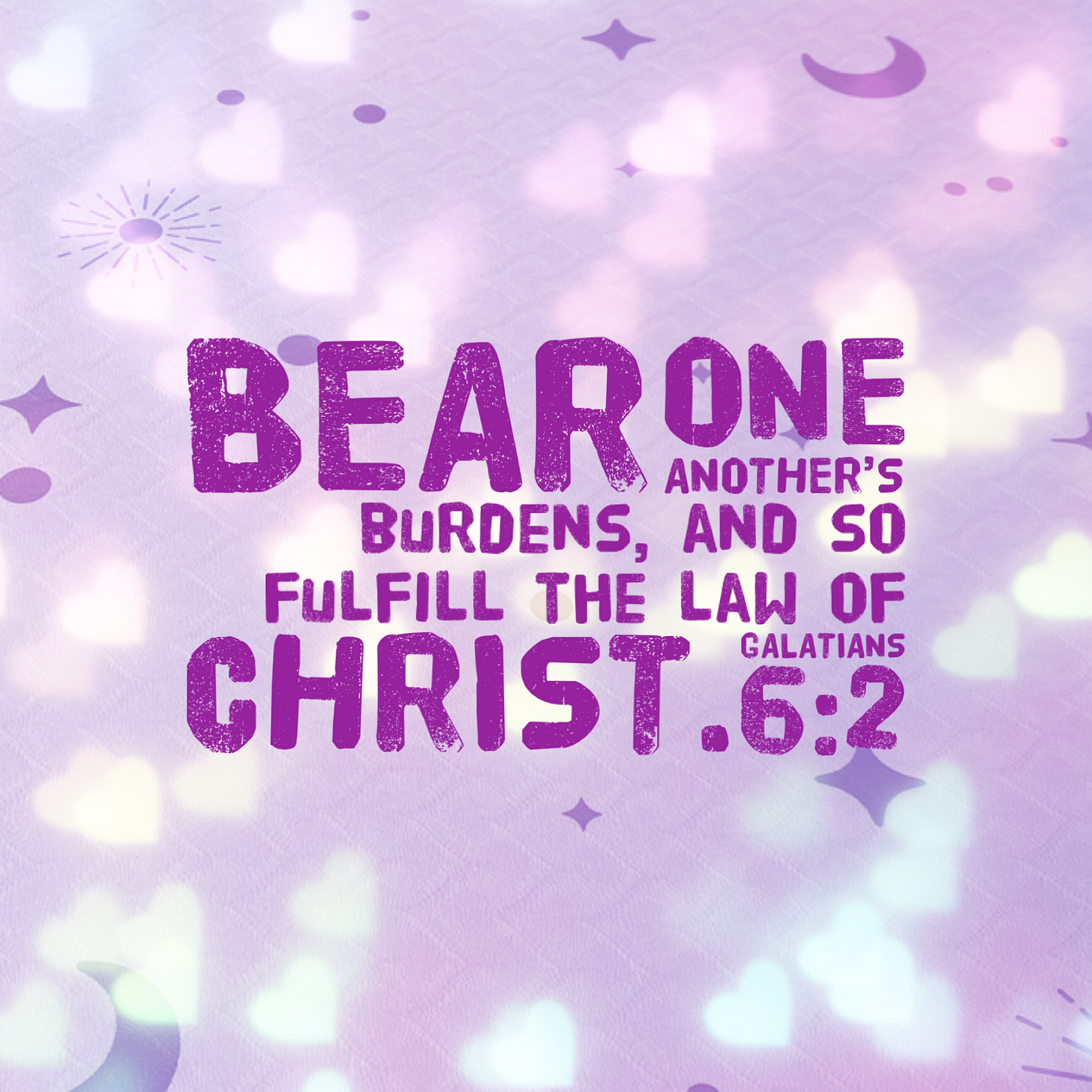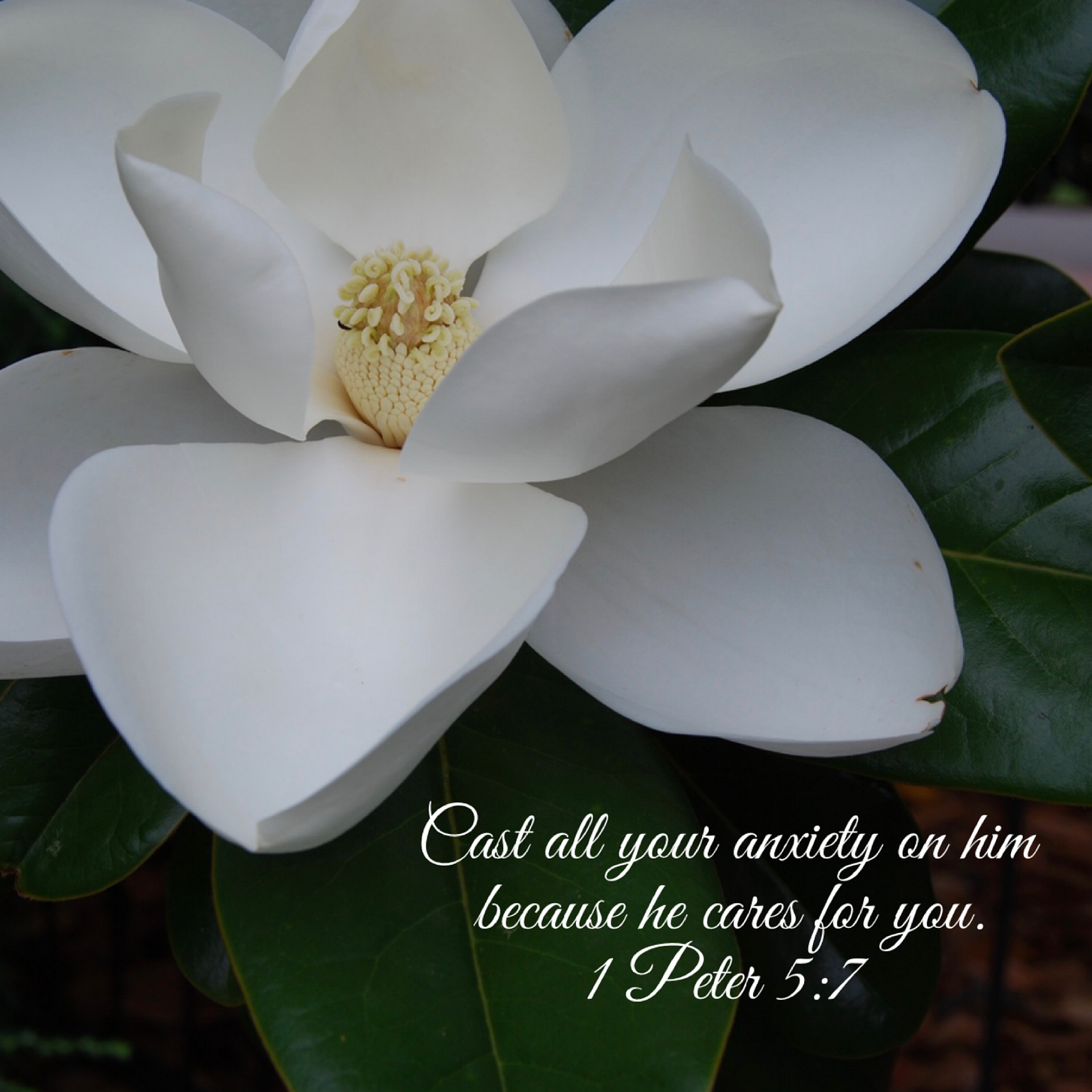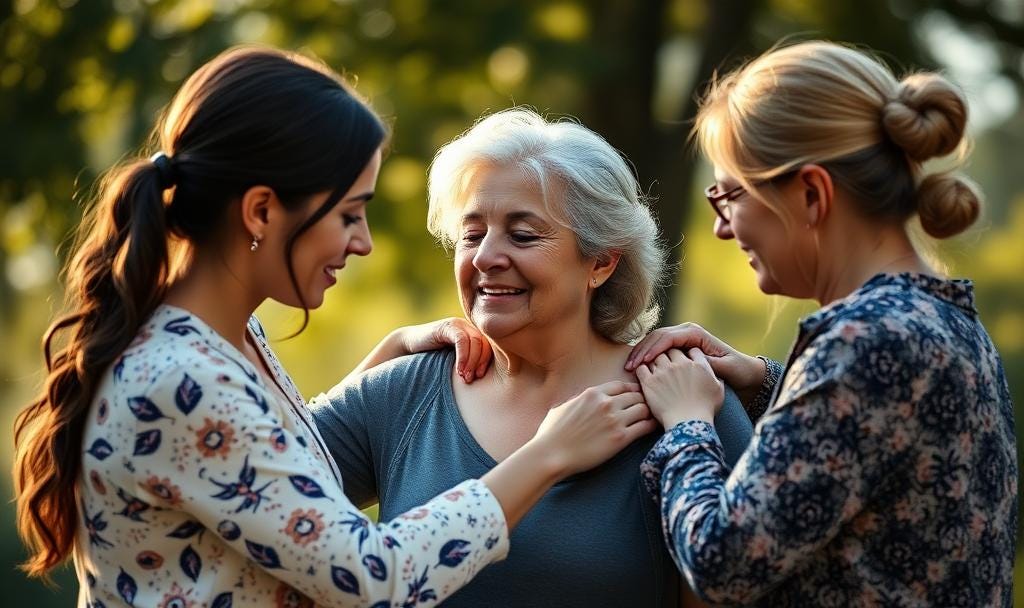This week in small group we discussed the most recent sermon in our series, “Blessed Are The Spiraling”.1 Nine women of varying ages sat in a circle, longing for connection, eager to recount all they had absorbed the day before at church.
This week’s message challenged how we view grief and the tornado of emotions and complications that often come with loss. Part of the message spoke about the importance of community and being vulnerable. My mind immediately went to the difficulty many face in reaching out in a time of need.
“How many of you like to ask for help?” I questioned.
As my gaze traveled from one woman to the next, I noticed them avoiding my gaze, shyly smiling and staring down at their hands in their lap.
One person leaned back and crossed her legs. Another took a sip of tea. My co-leader and I exchanged amused looks as we let the question hang in the air.
The exposed ductwork over our heads rattled, providing a cover for the sudden silence.
“Now, how many of you like to give help?” I continued.
EVERY HAND RAISED.
Many answers surfaced as to why we all felt more inclined to help than request help from others.
“I like to be independent.”
“I don’t want to be needy.”
“I once asked for help and no one stepped forward.”
Pride. Lack of identity. Fear.
These three cause havoc in our lives when they run the show. The Bible gives us many examples of people in need and shows us how those around them provided, protected, and prayed.
Our five-part sermon series exposed a time in our pastor’s life when he faced multiple difficult seasons. We examined how treasures that God has for us may be hidden, taking work to unearth. We held up a mirror to see how the choices we make can cause spiraling in our lives.
This week, Pastor Levi shared how sorrow can take us into a cyclone of emotions and behaviors, and he offered guidance to us when, not if, we find ourselves in an unwelcome trial.
“God wants to bless you in places you don’t want to be.”
- Levi Lusko
Pastor Levi shared seven ways to spiral UP rather than DOWN during times of loss.
Mourn specifically (break down overwhelming feelings into manageable pieces)
Deal with yourself gently (remember your identity as God's beloved)
Be vulnerable with community (let others in by sharing)
Talk to God honestly (be truthful, trust His care)
Share what you learn selflessly (wisdom gained = wisdom shared)
Interpret struggles accurately (see trials as opportunities for growth)
Store your treasures wisely (invest in eternal, not temporary, things)
Reviewing my notes again, I zoomed in on opening up to people within a community. I remembered James 5:16, “confess your sins to each other and pray for each other so that you may be healed.” When we don’t share our struggles, others can’t care for us. We have to FEEL to HEAL.
Here we sat within a safe community, with others who share the same values. Just moments before, someone had offered to move a chair for me and I had awkwardly danced around the offer of help, even though she delighted in the task.
As I looked around the room, a challenge came to mind, one that I anticipated would cause discomfort, but potentially could produce lasting change.
“My challenge to all of you
this week is to ask for help.”
A collective groan filled the room.
T. grew animated and shared, “I asked for help today! Does that count?”
P. buried her head in her hands, resisting the call to change.
M.’s face grew despondent as she remembered the hurt from being left alone in her time of need.
We had established that many of us feel comfortable seeking God first when we need help. But rarely did any of us ask a human here on earth for assistance.
I suspect this might be rooted in memory loss.
We forget who we are.

Every, single one of us is willing to roll up our sleeves, jump in the car, whip up a meal, or hold the hand of one who is suffering. In the blink of an eye, we all agreed that we LOVE to be helpers.
Doing = easy.
Doing = significance.
Doing = blessing.
But for us to BE helpful, someone needs to ask.
The gifts and talents of those who love us can only be shared if our needs are expressed.
Yet, this vulnerability takes courage, especially for those who have been taught that independence is the holy grail, that needing help somehow diminishes their worth.
When we dismiss our intrinsic value as children of God, this perceived insignificance might mean we feel we can’t burden others with our needs. This attitude rarely surfaces openly; instead, it hides behind confident smiles and reassuring “I’m fine” responses, even as life’s challenges continue to mount.
And mount they do!
Levi suggested that in life, we can come out of the water from a long swim, only to have someone hand us a bike and tell us to get pedaling. When we finish the bike race, thinking we can rest, someone appears with our running shoes, pushing us towards the beginning of a long run. The challenges are often layered and seem unending, even unbearable.
I thought back to that stretch in 2023-24 when it felt like I was running my own personal triathlon. It felt like I was in a wine press, having my self-reliance slowly and painfully squeezed out of me. Physical restrictions and health issues forced me to need others.
I had to ask for help.
These days, I still get a catch in my chest when I want to fix something myself rather than asking for help and allowing someone to bless me with their generosity and gifts. The lesson I learned took time and I found myself fighting against chants in my brain:
“You’re too needy.”
“No one wants to help you.”
“You’re so weak.”
Yes. Yes, I am. And Yes. Yes, they will help.
When we step outside of ourselves and our desire to fly solo, we see the willingness of others to graciously offer up their skills and gifting and we can bravely extend a willing, open hand to receive help.
In addition, when we see ourselves from God’s point of view, we internalize the truth that we are seen, known, loved, and worthy. Worthy of the blessings others want to bestow on us if only we ask.
The paradox of help reveals itself: those most eager to give are often the most hesitant to receive.
Yet true community flourishes when we're brave enough to be vulnerable, to acknowledge our needs, and to let others serve as God intended.
This week, I challenge you to:
Notice when you deflect offers of help
Practice saying "yes" to one sincere offer
Share your experience in the comments below
When we accept help, we honor God's design for His family: a beautiful tapestry of giving and receiving. Our vulnerability creates space for others to share their gifts, and together we reflect His perfect plan for community.
Be brave. Say yes. Let others in.









'Blessed are the spiraling.'
Yes, sooner or later we will all spiral down. But we are forever held in His strongly gentle hands and He restores our souls, bodies, and minds. Thank You, Jesus. Help us to come alongside others who are in hard places ...
Thanks, Ellen.
As a "Mid-Eighties" great grandmother,the need to " do it myself" has a different meaning.We,sometimes, feel that if we ask for help,it is the first step to losing our independence,which we guard fiercely.When is an offer for help an act of love, or is it a burden because of our age? For me,I am very sure that help is an act of love from my family,but others may not be so fortunate.I remember an occasion when someone told me,they pretended they had an issue with their refrigerator just to get a plumber to her home. The real reason for the plumber's house call was for him to remind her how to operate her aircondioning,and she didn't want her children to know ,she had forgotten how to operate her thermostat.
The joy you receive helping someone,you can give to someone that wants to help you.